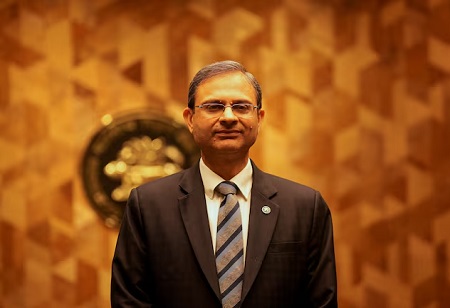
Reserve Bank of India (RBI) Governor Sanjay Malhotra made a compelling case for states to keep their finances in check to support India’s economic growth. Speaking at a gathering of state finance secretaries in New Delhi, he emphasized that careful spending, smart borrowing, and close teamwork with the RBI are key to building a stronger, more prosperous future.
The one-day conference, titled “Journey towards Economic Prosperity through the Path of Fiscal Consolidation,” brought together finance officials from 28 states and two Union Territories, along with leaders from the Ministry of Finance, the Controller General of Accounts, and the Comptroller and Auditor General of India. They discussed critical issues like managing state budgets, handling borrowings, and planning for sustainable growth, with India aiming for a 7% GDP increase in the coming year.
“Sticking to fiscal discipline is essential for growth,” Malhotra said, urging states to borrow wisely and focus on high-impact spending. He praised states for keeping their gross fiscal deficit (GFD) at 2.91% of GDP in 2023-24, below the 3% limit set by the Fiscal Responsibility Legislation. States also boosted their capital spending to 2.6% of GDP, up from 2.2% the previous year, showing a commitment to investing in infrastructure and development.
For 2024-25, states have set a slightly higher GFD target of 3.2%, reflecting cautious planning. However, Malhotra raised concerns about some states borrowing more than planned in the first half of the year, often through long-term bonds. He warned against relying on off-budget borrowings, which could strain finances and limit private sector investments.
Malhotra also called for better coordination between states and the RBI on issues like currency management, financial inclusion, and the Unified Lending Interface (ULI), a digital platform to make lending easier, especially in rural areas. These efforts, he said, would strengthen the economy and ensure more people benefit from growth.
Also Read: Airbus Sources 1B+ USD Components from 100 Indian Suppliers
With the central government targeting a 4.9% deficit for 2024-25, state-level responsibility is crucial to keep India’s economy stable, especially with global challenges like rising commodity prices. By staying disciplined, states can free up funds for welfare programs and green projects, supporting India’s long-term goals, including its net-zero target by 2070.
The conference also tackled practical issues like managing cash flow and aligning state borrowing with market trends. Malhotra’s message was clear: fiscal responsibility isn’t just about limits—it’s about creating opportunities for growth and fairness. As India recovers from the pandemic, this approach could help the country reach its $5 trillion economy goal faster.
We use cookies to ensure you get the best experience on our website. Read more...